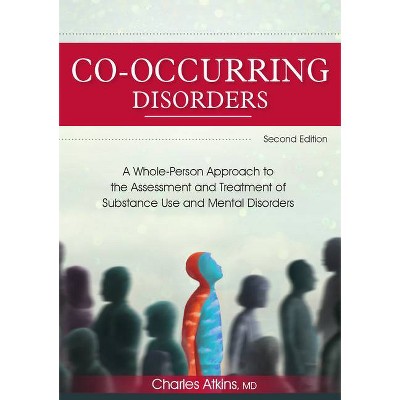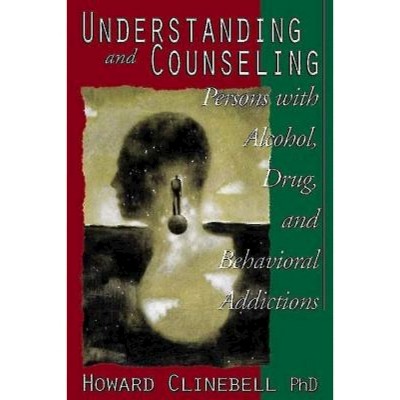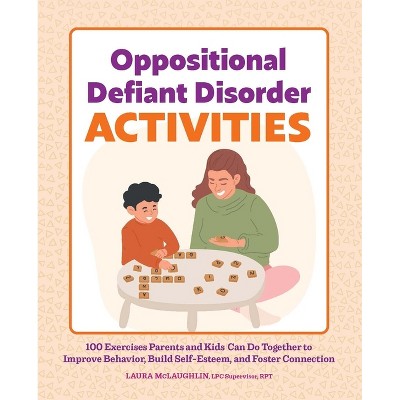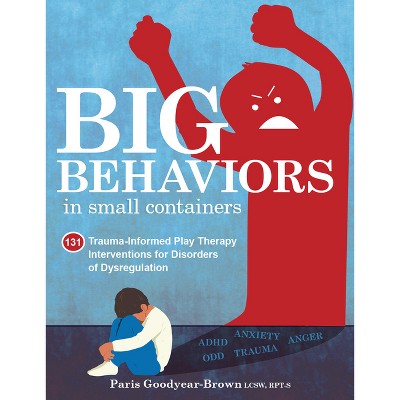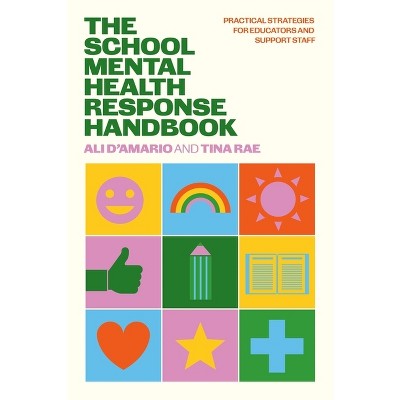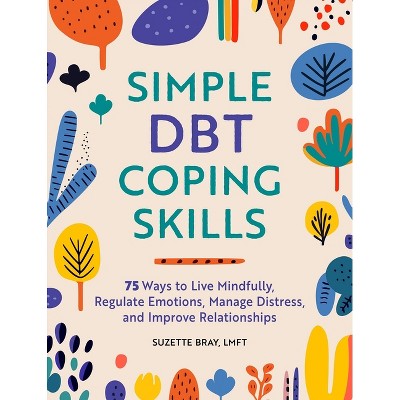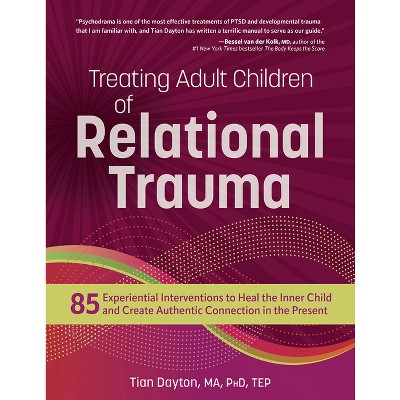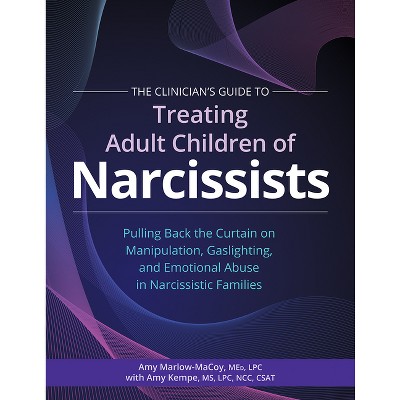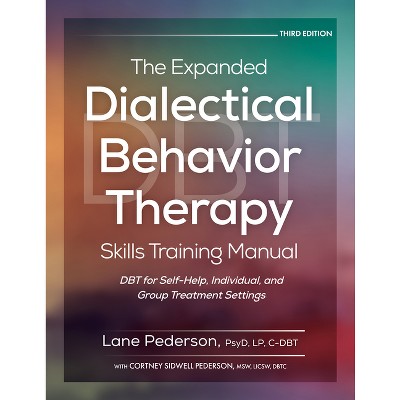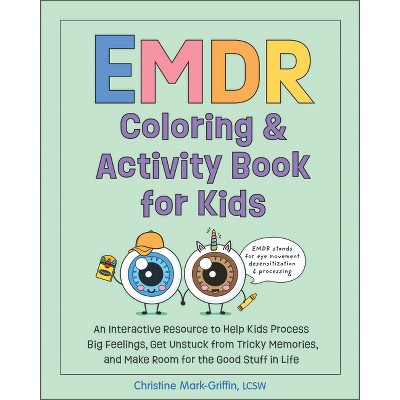Sponsored

Treating Children with Disruptive Behavior Disorders - by Whitehead Michael (Paperback)
In Stock
Sponsored
About this item
Highlights
- Kids with "bad" behavior aren't inherently "bad" kids......and behavior problems don't occur in isolation.
- About the Author: Michael Whitehead, PhD, is a licensed marriage and family therapist, Registered Play Therapist-Supervisor(TM), and developer of integrative systemic play therapy (ISPT).
- 230 Pages
- Psychology, Psychotherapy
Description
About the Book
Kids with "bad" behavior aren't inherently "bad" kids ... ... and behavior problems don't occur in isolation. So why do we treat them like they do? In Treating Children with Disruptive Behavior Disorders, clinicians will find a family-focused, phasic treatment approach known as integrative systemic play therapy (ISPT) which is designed for children and adolescents who exhibit challenging, defiant, violent, or antisocial behaviors. Rooted in family systems and play therapy, ISPT works to address the needs of the child and the system - that is, the relational interactions and processes in the family that are contributing to the presenting problem - rather than focusing on the child alone. Featuring handouts, vignettes, personal stories, and more, this clinical guide walks you through each phase of ISPT so you can: - Reset family dynamics to break cycles of reactivity, power struggles, and punishment - Restore the child's sense of "goodness" and inherent worth - Reframe behavior problems as requests for connection, safety, and recognition - Help children and their adults regulate, cope, and communicate more effectively - Empower parents to serve as the main change agents in their child's life - Address triangulation, ineffective commands, and other unhelpful patterns on the spot Kids who act out are often only seen for their behavior, and not for who they really are. By recognizing the needs that underlie these behaviors - and the systems that reinforce them - you can facilitate paradigm-shifting change for the entire family.Book Synopsis
Kids with "bad" behavior aren't inherently "bad" kids...
...and behavior problems don't occur in isolation. So why do we treat them like they do?
In Treating Children with Disruptive Behavior Disorders, clinicians will find a family-focused, phasic treatment approach known as integrative systemic play therapy (ISPT), which is designed for children and adolescents who exhibit challenging, defiant, violent, or antisocial behaviors.
Rooted in family systems and play therapy, ISPT works to address the needs of the child and the system--that is, the relational interactions and processes in the family that are contributing to the presenting problem--rather than focusing on the child alone. Featuring handouts, vignettes, personal stories, and more, this clinical guide walks you through each phase of ISPT so you can:
- Reset family dynamics to break cycles of reactivity, power struggles, and punishment
- Restore the child's sense of "goodness" and inherent worth
- Reframe behavior problems as requests for connection, safety, and recognition
- Help children and their adults regulate, cope, and communicate more effectively
- Empower parents to serve as the main change agents in their child's life
- Address triangulation, ineffective commands, and other unhelpful patterns on the spot
Kids who act out are often only seen for their behavior, and not for who they really are. By recognizing the needs that underlie these behaviors--and the systems that reinforce them--you can facilitate paradigm-shifting change for the entire family.
Review Quotes
"This book is a master class in treating children with defiant behaviors. Michael's expertise and compassion shines through on each page. His thorough research and theories are brilliant. Anyone who treats children and families with defiant behaviors needs to read and study this book. It provides hope for both families and clinicians in cases where hope feels lost. This approach has the potential to serve as a catalyst for completely transforming how clinicians engage with children exhibiting these behaviors."
--Emma Cherry, LCSW"Dr. Whitehead's work with families with difficult children has given him a strong background to write this book, based on his years of experience as a therapist with individuals and with families, especially families with very difficult children. After 24 years of teaching and supervising PhD and master's level students working with high-risk juvenile adolescents and their families, I found that I had a great deal to learn from Dr. Whitehead's models and from his thinking."
--Richard S. Wampler, PhD, MSWAbout the Author
Michael Whitehead, PhD, is a licensed marriage and family therapist, Registered Play Therapist-Supervisor(TM), and developer of integrative systemic play therapy (ISPT). He earned his PhD in human development and family studies from Michigan State University and MS/BS degrees from Brigham Young University. In full-time practice at Aspen Grove Family Therapy in Twin Falls, Idaho, he specializes in high-conflict families, childhood behavioral challenges, and family reunification therapy. A part-time professor and published author, Dr. Whitehead is also a frequent speaker and professional leader in play and family therapy.
Shipping details
Return details
Frequently bought together



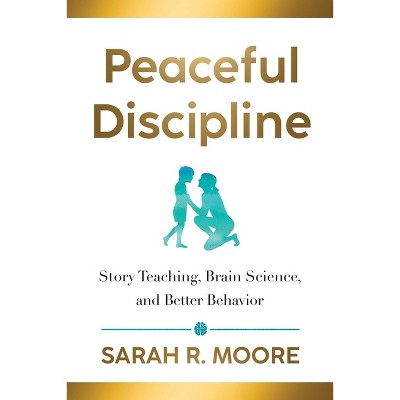
Guests also viewed


Discover more options
